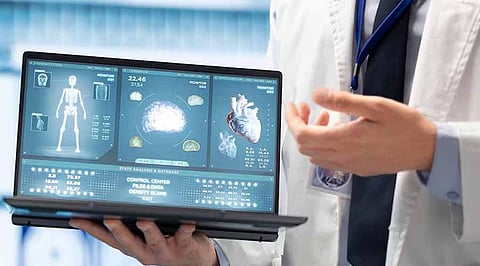

Innovation is changing the face of healthcare at a speed few could have predicted. Once a field defined by in-person visits, paper charts, and limited data-sharing, modern healthcare is being reshaped by cutting-edge technology that improves efficiency, expands access, and enhances patient outcomes. With each new advancement, the line between traditional care and futuristic solutions becomes increasingly blurred.
So, what’s next? While the world has already seen the impact of telemedicine, wearable health trackers, and robotic-assisted surgeries, the next wave of health-tech innovations is set to transform the industry even further. From AI-driven mental health support to advanced healthcare analytics, here’s what’s making waves in the medical world—and what’s coming soon.
People need quality mental health care, but the number of professionals available to provide care simply hasn’t kept up. With long wait times and accessibility issues, many people are left struggling to find the support they need. That’s where AI therapists are beginning to change the game.
By using advanced natural language processing, AI therapists can provide immediate mental health support, making therapy more accessible to those who might not otherwise have an option. While these systems aren’t replacing human professionals, they can fill a crucial gap—offering guided cognitive behavioral therapy, emotional support, and real-time crisis assistance. The use of AI can help reach people in rural areas, reducing costs, and ensuring that anyone who needs help can access it.
As the technology improves, AI-driven therapy may become an even greater tool for mental health professionals, acting as a supplement rather than a replacement. These digital therapists may handle initial screenings, provide ongoing support between sessions, and even flag concerns that require immediate attention. While some skepticism remains, the potential is undeniable—technology is making mental health care available to more people than ever before.
For all the focus on medical breakthroughs, healthcare still relies heavily on operational efficiency. The best treatments in the world mean little if they aren’t reaching the right patients in the right way. This is why the role of an Oracle health consultant has become so critical in modern healthcare systems.
With harnessing data analytics, AI-derived insights, and optimizing digital platforms, an Oracle health consultant supports healthcare companies for streamlining operations, improving patient care, and eliminating inefficiencies. These include-from better management of electronic health records to predicting analytics improvement suggested for patient treatment plans, all are using technology to the full.
Already the spillover effects are demonstrable. Healthcare providers are reducing hospital readmissions-from patients who improve their medication adherence and enjoy AI diagnostics resulting in earlier detection of conditions. Digital transformation is proving very beneficial for healthcare organizations, not only for their bottom lines but also for influencing patient outcomes therein. Treatment is just part of the future of healthcare-New, smarter, and more efficient ways to bring treatment are bebop-ing at the door.
Once limited to counting steps, wearable health technology has become a more sophisticated tool that provides real-time insights into everything from heart rate variability to blood oxygen levels. These devices are now personal health monitors capable of detecting irregularities before they become emergencies.
Smartwatches and fitness bands can now warn users of potential heart conditions, track sleep quality with medical-grade accuracy, and even monitor glucose levels for diabetics. Some devices are even being developed to detect early signs of neurological conditions, like Parkinson’s disease, through movement tracking and AI-based analysis.
The next frontier in wearable health tech is continuous monitoring that seamlessly integrates with healthcare providers. Instead of relying on annual checkups, patients could have real-time health data sent directly to their doctors, allowing for proactive rather than reactive care. The result? Earlier interventions, fewer hospitalizations, and a greater focus on preventative medicine.
Performing surgery by a robot could be a concept from a science fiction novel, but this very concept has come of age. AI-assisted robotic systems are helping surgeons perform operations far more precisely, with smaller incisions and a quicker patient recovery. The technologies enable subtle movement, greater visualization, and real-time adjustments depending on the patient's physiological responses.
Minimally invasive robotic surgery improves patient outcomes via advances in procedures such as joint replacements and cancer treatment. These systems are integrated with artificial intelligence, capable of analyzing patient data intra-operatively, offering recommendations, or warning against complications that might arise.
